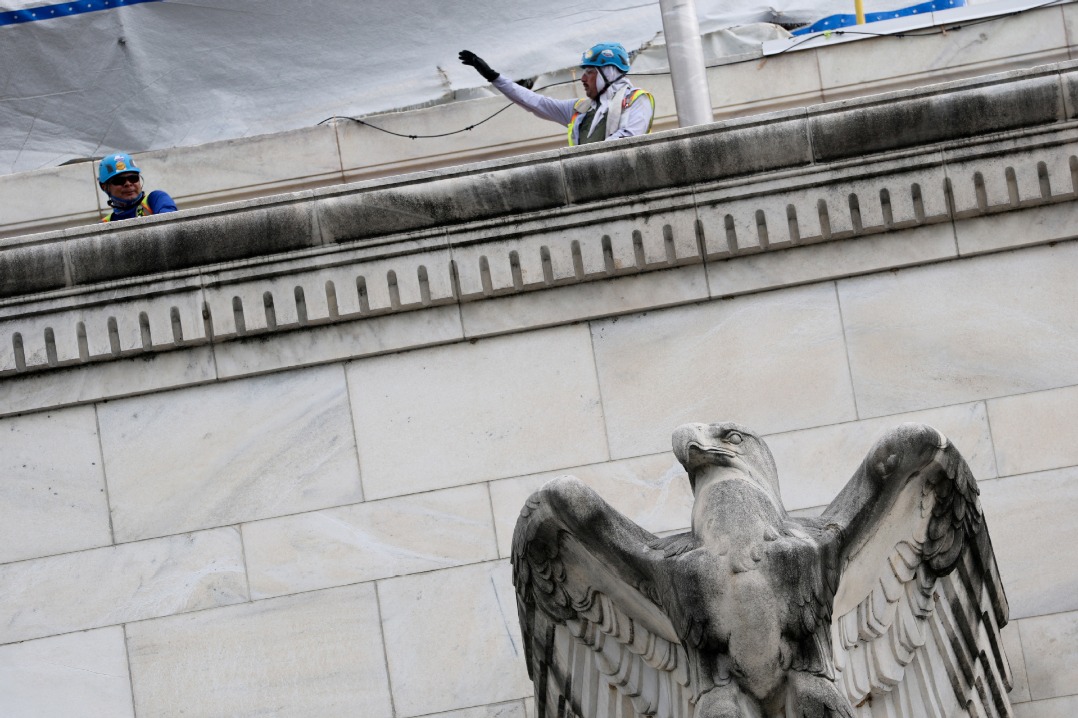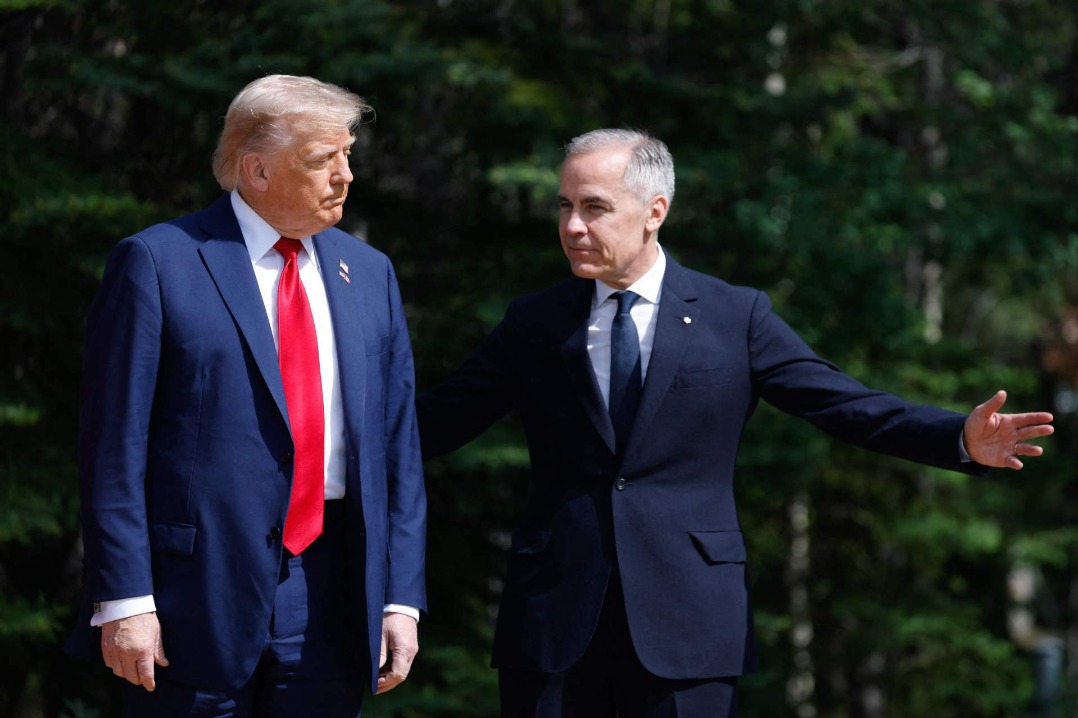Trump's tariffs signal 'shift to unilateralism'
Canada, Mexico face economic shock as ripple effects hurt US, experts warn


US President-elect Donald Trump's recent announcement that he would raise tariffs on Canada and Mexico over border security may have surprised the leaders of those countries, according to experts.
Trump, who will start his second term on Jan 20, said he would impose a 25 percent tariff on imports from the two countries, with the objective of pressuring them to adopt stricter border policies to curb undocumented immigration and drug trafficking.
"It was a surprise that it happened so quickly that Trump would impose his new 25 percent tariff on Canada until it stopped the flow of illegal migrants and drugs from crossing from Canada into the US," John J. Kirton, director of the G7 and G20 Research Groups at the University of Toronto, told China Daily.
Canadian Prime Minister Justin Trudeau responded immediately, privately calling Trump and arranging a meeting at Mar-a-Lago, Trump's estate in Florida, on Nov 29.
Mexico's president, Claudia Sheinbaum, publicly criticized and threatened to retaliate against Trump, Kirton said.
Since more migrants and drugs enter the US from Mexico than from Canada, "it will be harder for Mexico to meet Trump's conditions to take his tariffs off", Kirton said.
"Mexico's industries will be hit more broadly, including in agriculture, automotive products and consumer goods," Kirton noted.
"In Canada, aluminum, steel, forest products, and agriculture are likely to suffer the most," he said.
Kirton characterized the tariffs as part of a shift in US foreign policy."It's a bigger, broader shift to US unilateralism and isolationism than Trump unleashed in his first presidential term," he said, describing it as a sharp departure from the multilateralism of past administrations.
"For Mexico, the policy could exacerbate its developmental challenges, with foreign investors potentially retreating due to economic uncertainty," Kirton said.
"If necessary, Canada will also retaliate with its own tariffs on selective US exports, which cause the most political pain for the US and the least economic and political pain for Canada. It did this during Trump's first term," he said.
Barbara Spencer, a professor emeritus at the University of British Columbia, told China Daily: "If across-the-board tariffs at 25 percent were implemented, the Canadian and Mexican economies would suffer a major shock and likely be pushed into recession due to the severe disruption in exports."
'America First'
Spencer said that while Trump's rhetoric frames tariffs as an "America First" policy, their ripple effects could be felt on both sides of the border.
"US firms and consumers will also lose because much of the tariff would be passed on to US firms and consumers in (the form of) higher prices. Some products will become unavailable due to the loss of long-established supply chains," she said.
"For instance, a 25 percent tariff applied to exports of electricity from Quebec would have a particularly devastating effect in areas of the US Northeast that are dependent on this energy," she said.
Spencer also expressed concern about the stability of international trade. The world is now "moving into an era in which firms and governments face considerable uncertainty as to whether an orderly trading system will be maintained", she said.
Dennis Darby, president and CEO of Canadian Manufacturers & Exporters, called the proposed tariffs "a lose-lose proposition" that would have a devastating impact on manufacturers, workers and consumers in both Canada and the United States.
"Canada's exports to the US are primarily materials and inputs used by American businesses to manufacture other products," Darby said in a statement.
"Imposing tariffs wouldn't just harm Canada's economy — it would also hurt US manufacturers by increasing their costs and disrupting the deeply integrated supply chains that make North American manufacturing globally competitive," he added.
Darby pointed to the $2.5 billion in goods that crossed the US-Canada border daily in 2023, with 75 percent consisting of manufactured goods.
Bea Bruske, president of the Canadian Labour Congress, characterized Trump's tariff threat as "a direct attack on workers".
She said the tariffs pose an immediate risk to Canadian jobs, livelihoods and communities.
"This is not just a trade issue; it's about protecting the future of workers and their families," Bruske said in a statement.
"If the American government triggers a full-blown trade war, it's workers on both sides of the border who will pay the price," she said.

































